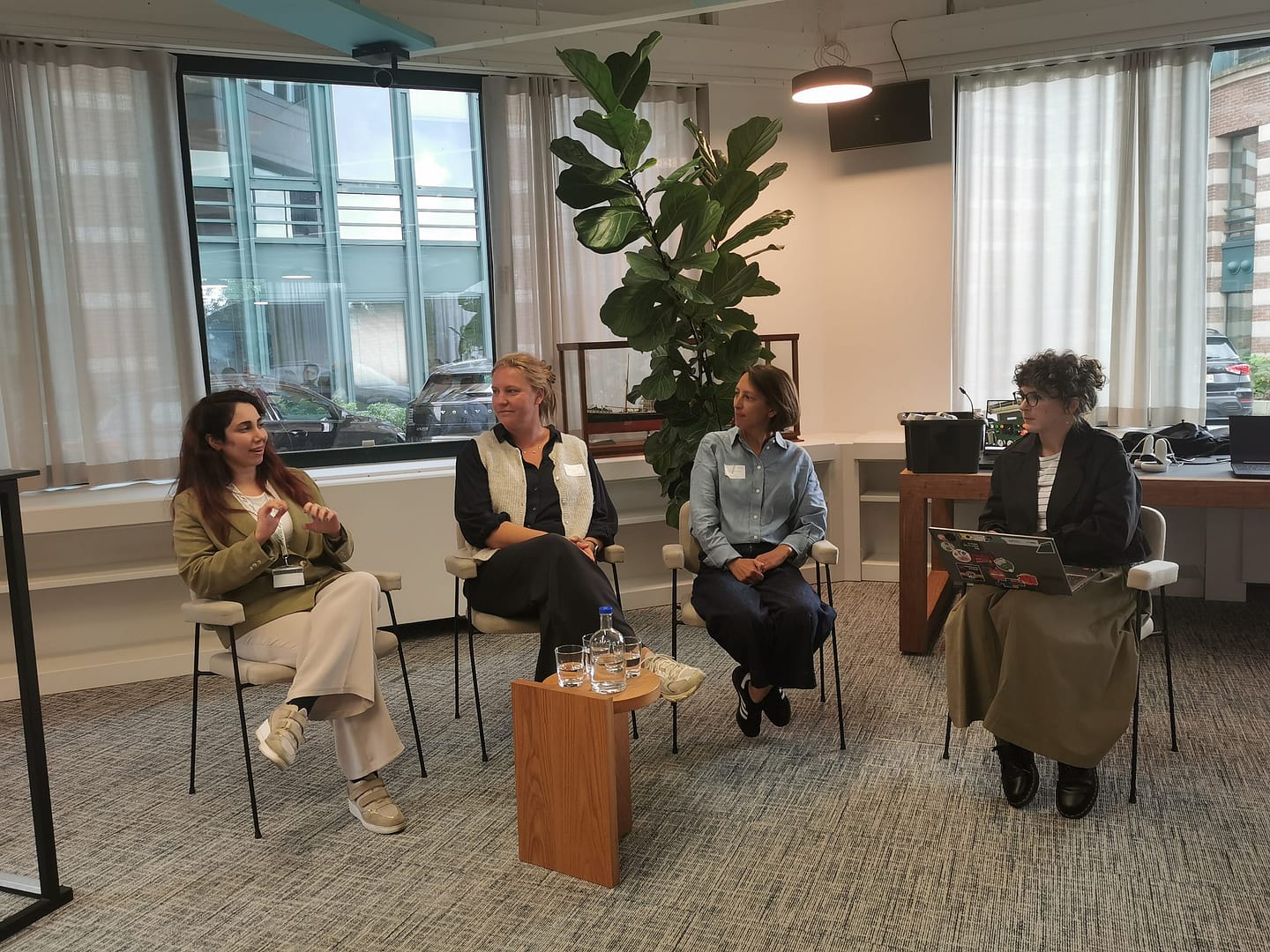
On September 12, 2024, at the Maritime Campus in Antwerp, partner institutions—the University of Rijeka, University of Ljubljana, and University of Antwerp — came together to host an insightful event on Gender Equality in the Maritime Sector. This important conversation brought together industry professionals and researchers to share perspectives and discuss the path towards a more inclusive maritime industry.
The event began with an inspiring lecture by Dr. Ghazaleh Kia, R&D Project Manager at Seafar and INNO2MARE Innovation Council member. Dr. Kia shared her educational and scientific journey, emphasizing the life circumstances that have shaped her career in a field with a longstanding gender disparity.
Panel Discussion: Insights and Reflections
The core of the event was a panel discussion featuring a distinguished lineup of experts:
- Kathy Speelman – Assistant Professor, Antwerp Maritime Academy
- Celine Audenaert – Belgian Shipowners Association
- Tina Matovina Trbojević – Maritime Center of Excellence, Lürssen Design Center Kvarner, Rijeka, Croatia
- Ghazaleh Kia – R&D Project Manager, Seafar
Moderated by Mrs. Daria Glavan Šćulac, Head of Legal and Diversity at UNIRI and Chair of the INNO2MARE Gender and Equal Opportunities Committee, the discussion explored the ongoing challenges and advancements in promoting gender diversity in maritime careers. Contributions from the INNO2MARE Gender and Equal Opportunities Committee further enriched the dialogue, with input from Prof. Dr. Geert Potters from the Antwerp Maritime Academy, Dr. Marko Šimic from UL, and other participants.
The panel covered several significant themes:
- Women in Maritime Careers: Panelists discussed the persistent underrepresentation of women in maritime roles and explored strategies to enhance their participation. The conversation also addressed how gender diversity contributes to the industry’s resilience and sustainability.
- Personal Journeys: Celine Audenaert highlighted how gender stereotypes often become more pronounced after women take on family responsibilities, emphasizing the valuable contributions women bring to the sector, particularly through skills developed in caregiving roles.
- Inclusive Workplaces: Capt. Kathy Speelman shared how early in her career, adapting to the norms and behaviors prevalent among her male peers was necessary. This dynamic changed when she joined a Finnish company known for its inclusive culture. She now advocates for authenticity among her students, noting that diverse perspectives and strengths from all genders enhance workforce effectiveness. She also stressed that achieving gender equality requires support from all industry members.
- Balancing Representation and Expectations: Tina Matovina Trbojević discussed her organization’s achievement of 30% female representation and a balanced management board. She addressed the sector’s demanding nature and the challenges of work-life balance, emphasizing the importance Tina emphasized the importance of ongoing understanding and commitment from management in creating a more equitable workplace.
- Breaking Barriers: Dr. Ghazaleh Kia highlighted how women’s expertise in technology is often underestimated and shared insights into overcoming bias in a field with a significant gender imbalance. She noted that many talented women have left the field due to perceived barriers to advancement and emphasized the importance of supportive environments, such as family support, in allowing individuals to pursue their careers without self-imposed limitations.
The panelists agreed that while progress has been made, practical barriers remain, such as access to properly fitting safety equipment for women. They also discussed the potential of technology, including AI, to foster a more balanced industry.
Looking Ahead
The discussion, as anticipated, generated more questions than answers, setting the stage for future action. Despite ongoing challenges, there is evidence of positive change emerging from within the sector. As the dialogue continues, diverse initiatives and perspectives are paving the way for future collaboration and solutions.
We extend our sincere gratitude to all participants who contributed to this crucial dialogue, working towards a more inclusive and equitable maritime industry.
Curious to know more? Watch the event livestream at the link : Inno2Mare General Assembly-20240912_140249-Meeting Recording_Gender Event.mp4

